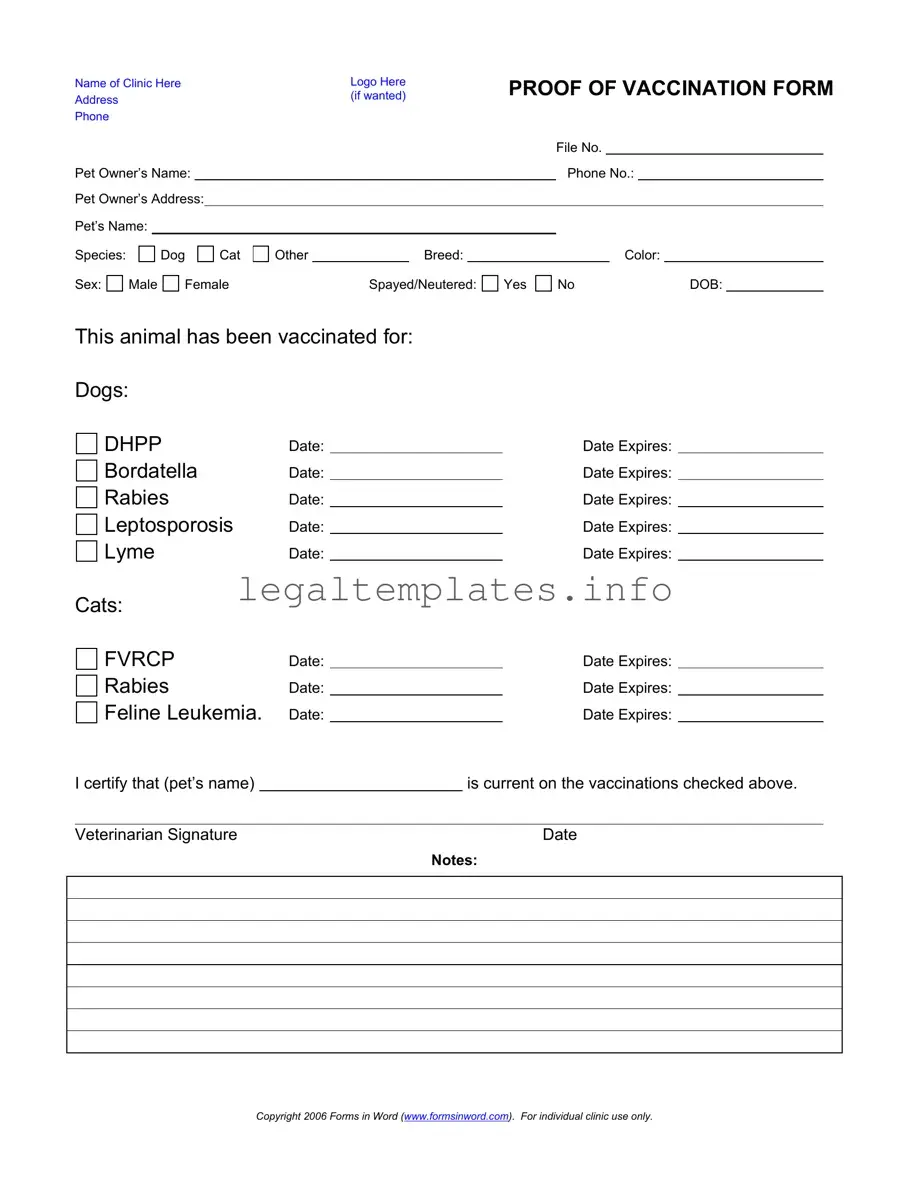What is a Proof of Vaccination Dog form?
This form is a document that officially records a dog's vaccinations, provided and certified by a veterinarian. It contains details such as the clinic's information, pet owner's details, and the specific vaccinations the dog has received, including the dates of vaccination and when they expire.
Why do I need a Proof of Vaccination Dog form?
Having this form is essential for various reasons. It's often required for enrolling your dog in daycare, grooming services, training classes, or boarding facilities. It may also be necessary for compliance with local licensing laws, and for travel both domestically and internationally.
What vaccinations are listed on this form?
For dogs, the form documents vaccinations against DHPP (Distemper, Hepatitis, Parainfluenza, and Parvovirus), Bordetella, Rabies, Leptospirosis, and Lyme disease. Each vaccination is recorded with its administration date and expiration date.
How do I get a Proof of Vaccination Dog form?
You can obtain this form directly from your veterinarian. After administering the needed vaccinations to your dog, your vet will fill out, sign, and date the form, confirming that your pet is current on the vaccinations listed.
Is this form only used for dogs?
While this specific template focuses on dogs, noting vaccinations common to canines, it also mentions cats and 'Other' species. Alterations to the form accommodate different animals, essentially providing a custom proof of vaccination for various pets.
What should I do if my dog's vaccination expires?
Once a vaccination expires, it's important to have your dog re-vaccinated to maintain their health and compliance with any legal or regulatory requirements. Schedule an appointment with your veterinarian to update their vaccinations and obtain a new Proof of Vaccination form.
Can I create a copy of the Proof of Vaccination Dog form?
This form is copyrighted by Forms in Word, intended for individual clinic use. To duplicate or distribute the form, you would need permission from the copyright holder. However, veterinarians can use the template to issue official proof of vaccination for pets under their care.
How long is the Proof of Vaccination valid?
The validity period of the Proof of Vaccination depends on the specific vaccination and local regulations. Each vaccine has its own effectiveness duration, listed as the "Date Expires" next to each recorded vaccination on the form. Keep track of these expiration dates to ensure your dog's vaccinations are always up to date.
Do I need to carry the Proof of Vaccination Dog form with me all the time?
It's not necessary to carry the form at all times, but it’s wise to have it easily accessible when traveling, visiting the vet, or using services that require proof of your dog's vaccinations. A digital copy on your mobile device can be a convenient way to have it on hand when needed.
Who can sign and certify the Proof of Vaccination Dog form?
Only a licensed veterinarian has the authority to sign and certify the Proof of Vaccination Dog form. Their signature attests to the accuracy of the information and confirms that the vaccinations were administered.


